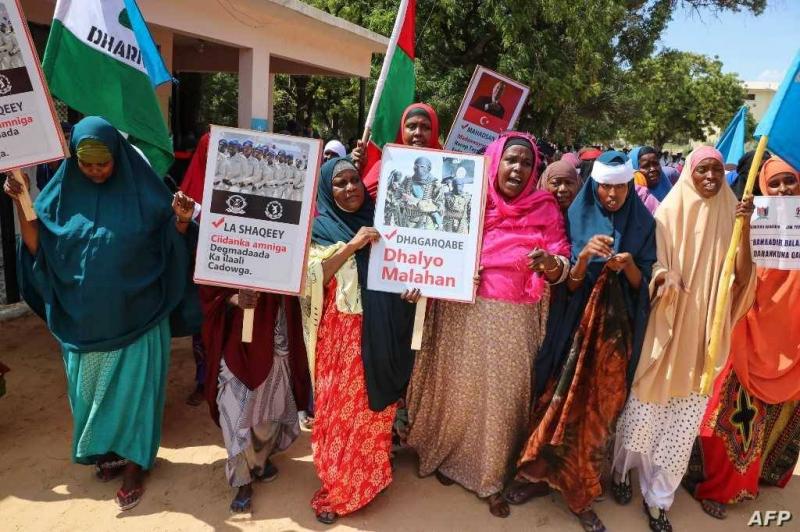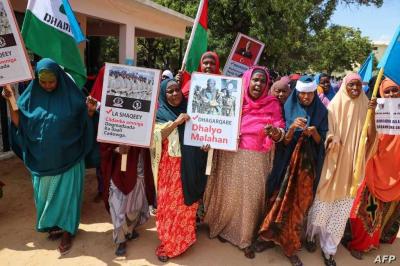Under the title "Somalia: International Reports Condemn Police and Army Involvement in Sexual Violence Crimes," Al-Hurra website published a translated news article indicating that despite warnings and demands from international organizations to halt all forms of sexual violence against women and children in Somalia, this phenomenon continues and is on the rise, according to many observers and experts.
In August, the United Nations Special Representative on Sexual Violence in Conflict, Pramila Patten, and the Special Representative for Children and Armed Conflict, Virginia Gamba, warned of the alarming increase in sexual violence in Somalia and called for all those responsible for such behaviors to cease these violations.
According to Forbes, recent reports and the Secretary-General's report on children in armed conflict, as well as the Secretary-General's report on sexual violence in conflict situations for 2020, indicate an approximately 80% increase in cases of sexual violence in Somalia compared to 2019. Among these cases, nearly two-thirds reported incidents of rape, with remaining cases including attempted rape, forced marriage, sexual harassment, and sexual assault.
The United Nations Assistance Mission in Somalia verified instances of conflict-related sexual violence against 400 girls, 12 women, and 7 boys. These violations are primarily attributed to clan militias and the terrorist group Al-Shabaab, which have seen a surge in reported cases of sexual violence. This extremist group continues to perpetrate sexual violence and forced marriages against women and girls.
The incidents of violence committed by clan militias nearly tripled in 2020, involving other parties in these crimes, such as the Somali police (16 cases), the Somali National Army (25 cases), Jubaland security forces (9 cases), and Puntland forces (5 cases).
Unfortunately, most of the perpetrators remain unidentified, while experts and humanitarian organizations state that impunity for these crimes will create fertile ground for further violations and assaults. The United Nations attributes the growing sexual violence phenomenon to prolonged armed conflicts, lack of gender equality, and humanitarian crises related to hunger and poverty.
Moreover, it pointed to the role of "political tensions in the run-up to national elections, ethnic clashes related to land disputes, and an increase in the activities of the extremist Al-Shabaab group, which intensified during the COVID-19 pandemic."
While cases of sexual violence in Somalia are on the rise, restrictions imposed due to the COVID-19 pandemic also mean that survivors of such atrocities have limited access to assistance, including basic services. Additionally, some services that are typically offered remotely, like psychosocial support, have been severely affected due to funding shortages, and judicial services, including those concerning sexual violence cases, have been temporarily suspended.
UN Special Representatives urged the Somali government to take tangible measures to prevent sexual violence against women and children and to expedite the adoption of a new national action plan to end sexual violence in conflict situations.




